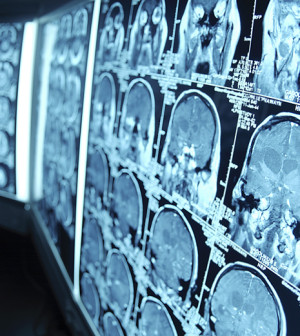- Could Your Grocery Store Meat Be Causing Recurring UTIs?
- Are You Making This Expensive Thermostat Error This Winter?
- Recognizing the Signs of Hypothyroidism
- 10 Strategies to Overcome Insomnia
- Could Artificial Sweeteners Be Aging the Brain Faster?
- Techniques for Soothing Your Nervous System
- Does the Water in Your House Smell Funny? Here’s Why
- Can a Daily Dose of Apple Cider Vinegar Actually Aid Weight Loss?
- 6 Health Beverages That Can Actually Spike Your Blood Sugar
- Treatment Options for Social Anxiety Disorder
Low Prenatal Vitamin D Linked to Later MS in Offspring

Children of mothers with too little vitamin D during their pregnancy may have a higher risk of developing multiple sclerosis when they reach adulthood, a new study suggests.
One expert in the United States said that the findings need to be interpreted with caution, however.
“We cannot say from this study that low vitamin D levels cause MS in women’s offspring,” said Dr. Daniel Skupski, chair of obstetrics and gynecology at NewYork-Presbyterian/Queens hospital in New York City. All the study points to is an association between the two, he stressed.
What the research does do, Skupski said, is “set the stage” for further research to see if getting more vitamin D in pregnancy might lower people’s lifetime risk for multiple sclerosis.
Multiple sclerosis affects a person’s brain and spinal cord by damaging the myelin sheath, the insulating layer that surrounds and protects nerve cells, according to the U.S. National Institutes of Health. This leads to symptoms such as muscle weakness, lack of coordination and balance, vision problems, and trouble with thinking and memory.
In the new study, researchers led by Kassandra Munger, of the Harvard School of Public Health in Boston, reviewed information from hundreds of adults in Finland.
The investigators found that people whose mothers hadn’t had enough vitamin D in early pregnancy were 90 percent more likely to develop MS compared to people whose mothers had adequate vitamin D levels during pregnancy.
This suggests that vitamin D deficiency during pregnancy may increase a child’s risk of MS later in life, the research team said. However, the study authors pointed out that two previous studies had not found a link between early vitamin D levels and later MS, so the jury may still be out on this issue.
Skupski agreed. The results of the latest study “do not tell us if providing vitamin D during pregnancy will improve the outcomes or lower the risk of offspring developing MS,” he said.
Dr. Paul Wright is chair of neurology at North Shore University Hospital in Manhasset, N.Y. He also agreed that there have been conflicting results from various prior studies on the issue, and “additional studies” may be needed.
The new study was published online March 7 in the journal JAMA Neurology.
More information
The U.S. National Institute of Neurological Disorders and Stroke has more about multiple sclerosis.
Source: HealthDay
Copyright © 2026 HealthDay. All rights reserved.










